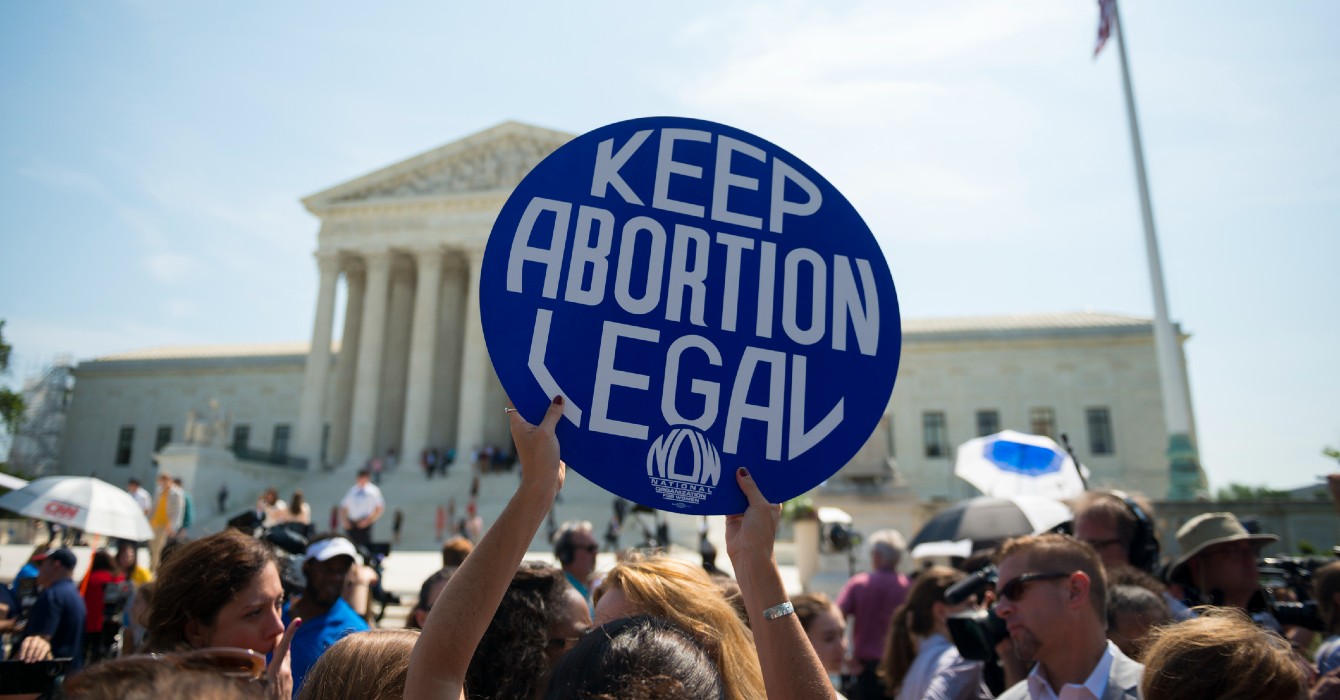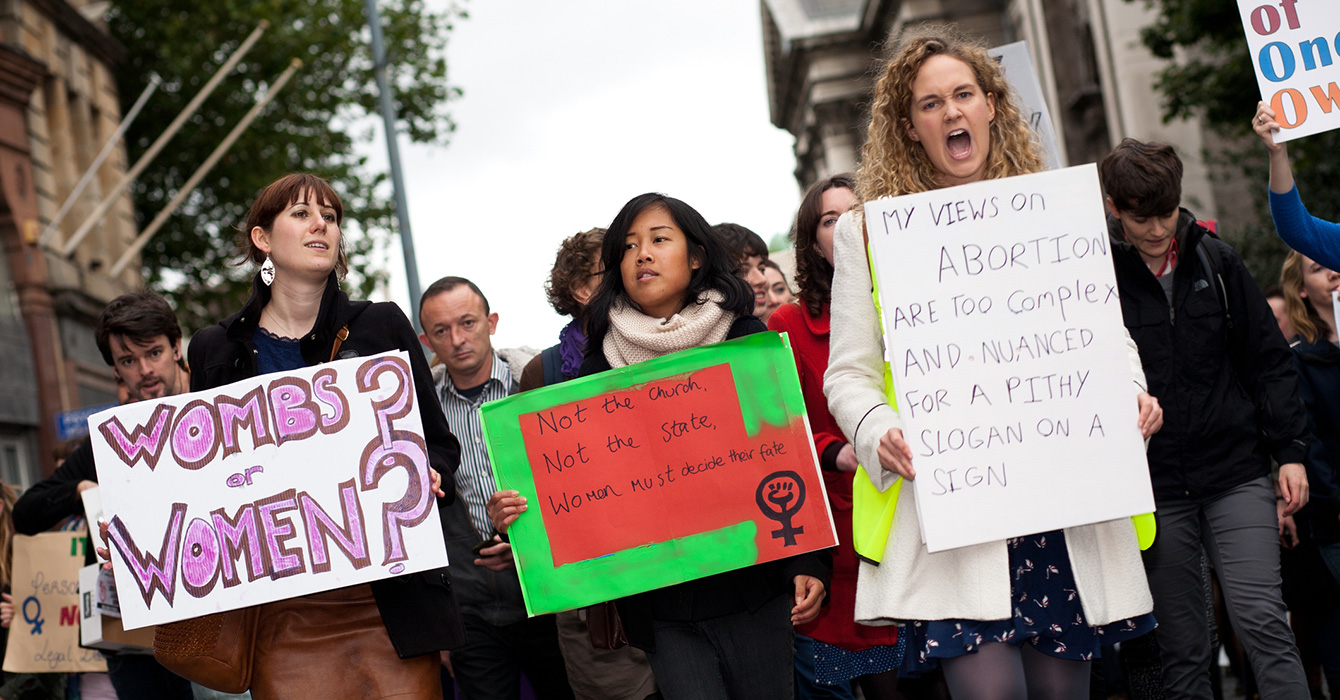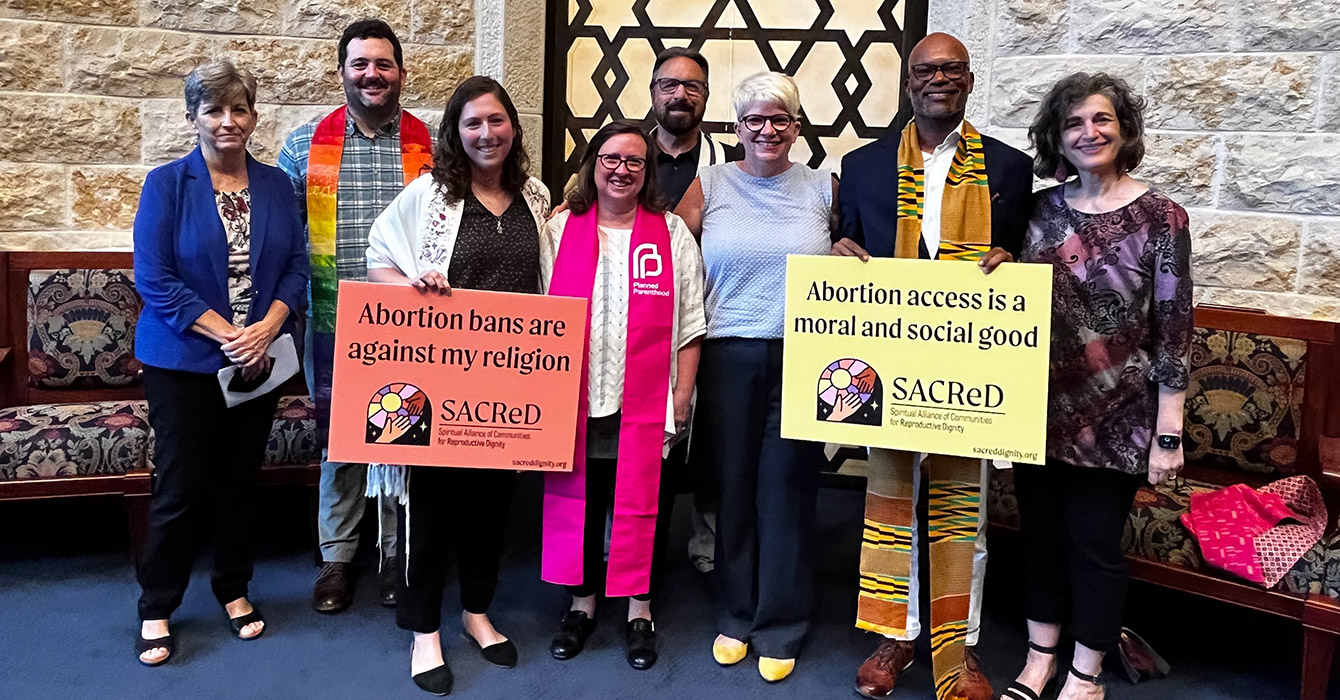A couple of years ago, I was having dinner with some old family friends of my parents whom I hadn’t seen since I was a child, more than 40 years ago. They have two boys about my age, and I was chatting with one of them about my new book, “Trust Women: A Progressive Christian Argument for Reproductive Justice,” which had brought me to town.
Their mother, a gracious Southern, church-going woman in her late 70s, must have overheard us, because she turned to her other son and whispered in a stricken tone, “They are talking about abortion — make them STOP!”
Talking about abortion makes many people profoundly uncomfortable.
Even though abortion is a common medical procedure that one-quarter of American women have by the time they are 45. Even though abortion is safer than childbirth, particularly for Black women, who have a maternal mortality rate three times higher than white women in the U.S. And even though abortion was legal in the U.S. for almost 50 years.
Most people don’t like talking about abortion.
There is a widespread perception that people know what they think about abortion and that those opinions don’t change. One publisher told me that a book on abortion is what they call a “brown paper bag” book, meaning that people want to cover it up to read it in public because they don’t know how others might react. A book agent told me that no one reads books about abortion, because everyone already has a stance on it.
In reality, a fair number of people do change how they think about abortion during their lifetimes. A 2018 PRRI survey found that 20% of people reported changing their minds in the last five years, and a recent YouGov poll found that 27% of people reported having changed their views about abortion at some point in their lives.
Even more interesting is the fact that between PRRI’s 2018 survey on abortion and their 2022 survey, every religious group surveyed, except white evangelicals, increased their support for legal access to abortion in all or most cases — including Latter-day Saints by 10% and Jehovah’s Witnesses by 50%. While large majorities of both the LDS church and Jehovah’s Witnesses remain against legal access to abortion in all or most cases, it is noteworthy that support for legal access in these communities did increase over the past four years.
Jews and Buddhists, who already strongly supported abortion access, both increased support by 13%, support from Hindus increased by 11%, and support from Muslims increased by 29%.
But the biggest gains in support of legal access to abortion were among racial and ethnic minorities. Black Protestants increased their support by 29%, Hispanic Catholics by 49%, other Catholics of color by 29%, and other Protestants of color by 23%. It is not insignificant that racial and ethnic minorities, who often experience the brunt of unjust laws, are increasing their support for legal access to abortion care.
These numbers point to the fact that people do change their minds on abortion — and that having educated conversations about the issues matters. When I speak in churches across the country, I often begin by asking people whether they’ve ever heard a sermon on abortion, and there are never any hands. I don’t think shifting support for access to abortion has come about because more Christians are talking about abortion in positive ways, or are even talking about abortion at all.
Admittedly, I am usually speaking in mainline Christian congregations, and while all the mainline denominations are publicly on the record supporting legal access to abortion, we don’t talk about abortion in church.
And that’s a problem.
Whatever you believe about the morality of abortion, everyone I talk to in faith circles agrees that the decision to end a pregnancy is a significant moral decision. You know who else thinks it’s a significant moral decision? Christian women who are having abortions.
Over the past two years, my research team has interviewed 81 Christian women having abortions in the South as part of the research team of the Abortion & Religion project. Every one of the women who shared their stories reflected a deep respect for the meaning and value of parenting.
Every one of them recognized the decision as a moral decision. Too many of them also expressed the belief that they could never talk to their pastors about their experience. Many reported that they felt like they couldn’t talk about their abortion with their church communities.
We also asked women what they had heard about abortion from their churches or from their pastors growing up. While most Southern Baptist women remember being told very clearly that abortion was murder, that it was a sin and, for many of them, that they would burn in hell if they had one, many Protestants who grew up in mainline and nondenominational churches said they didn’t hear anything about abortion in church growing up. But many of them told us that they just knew it was wrong.
This begs the question: Who is educating mainline Christians about the morality of abortion when it isn’t being talked about in their churches? Perhaps it’s the reductive, decontextualized theology of the anti-abortion movement that is not only shaping our culture but now being codified in our laws.
People learn anti-abortion messages from the billboards that blanket Southern highways, the bumper stickers that fill our roadways, and the protesters that permeate the American imagination preaching a concerted theological message that God is against abortion and that life begins at conception.
It is not the job of a secular abortion-rights movement to counter these theological claims — indeed, theological questions should not be debated by the state, and theological beliefs should not be codified into law at all. Instead, it is our job as Christian leaders to help shape more nuanced and critically informed conversations about the theological questions of when life begins, how we interpret Scripture, and how we think about the morality of sex and abortion — in our congregations and in our culture.
However you answer these questions theologically, those answers reflect our relationship with God and our faith. Mainline Christian leaders need to be willing to ask those questions and find thoughtful answers in our communities.
Until Christian leaders stand up and lead more nuanced and thoughtful ethical conversations about sex, parenting and abortion in our pews and in public, we have ceded powerful influence to those who are comfortable preaching against abortion rights in their churches, in our communities and in our legislatures.




















